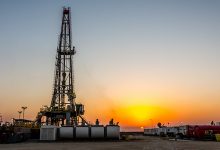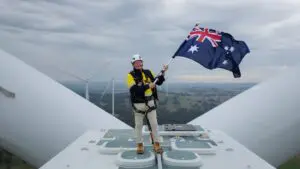The Victoria Labor government has been criticised for using misleading jobs data and emissions figures as justification for ending the state’s moratorium on gas exploration.
In lifting the ban on onshore conventional gas exploration, the Andrews government said earlier this week it could create as many as 6,400 new jobs across regional Victoria. But according to think tank The Australia Institute, this figure is overblown by a factor of more than 100.
The Victorian government has relied on modelling completed by Ernst and Young and included in its latest gas program progress report for the 6,400 jobs figure, which was split between 4,336 direct and 2,059 indirect “equivalent” jobs “over the lifetime of production”.
However, the same report suggest that the number of actual positions that may be created by a ramp-up of gas exploration may only number in the hundreds, creating a maximum of 242 positions in a best case scenario and could little as 78 under a minimum scenario.
“The claims being made by the Victorian Government to justify gas development on some of Victoria’s best farmland are highly misleading,” The Australia Institute principal adviser Mark Ogge said.
“For the Government to claim it will create 6400 jobs is grossly misleading. Their own research shows there will be as few as 57, and at most 204 more jobs [in the Otway region] as a result of gas development at any given time and the report acknowledges that it will displace an undisclosed amount of jobs in existing industries.”
The inflated figures resemble those used to justify Adani’s Carmichael coal mine, with initial claims that the Queensland coal project would create up to 10,000 jobs was also found to be greatly inflated after detailed assessments found that it may create less than a thousand direct jobs at the mine.
The think tank also questioned the environmental benefits of an expansion of Victoria’s gas industry, pointing to the fact that the research prepared for the state government only looked at increases in fugitive emissions, estimated at between 0.1 and 0.3 per cent of Victoria’s annual emissions, but ignored emissions released through increased gas use.
That same research, prepared by the Geological Survey of Victoria, found that an increase in gas exploration would have virtually no impact on local gas prices nor wholesale electricity prices, and would only work to support a gas industry that is already primarily orientated towards an international export market.
“The assessment found that the level of gas development under the scenarios is unlikely to materially change the level or diversity of suppliers in Victoria to the extent that it increases competition for gas users. As a result, it was unlikely to reduce the price of gas for Victorians and prices will continue to be set largely by the liquefied natural gas netback price,” the latest Gas Program Progress report says.
The Australia Institute said that this week’s announcement from the Victorian government would put local farm land and agricultural businesses at risk, for little economic benefit.
“The Gas Program Progress Report highlights just how measly the economic benefits will be for turning some of Victoria’s best farmland into an industrial gas field,” Ogge added. “There are few if any benefits here for local communities, only downsides. The real beneficiaries are the gas companies.”
Several environmental groups agreed with this point, with campaigners Friends of the Earth labelling the gas plan as “profound lapse of judgement by the Andrews government”.
“[Victorian] Minister for Resources Jaclyn Symes claims that the move will protect the environment, but in reality it will increase the threat to Victorian farmers through contributing methane to the atmosphere, which is a major contributor to global warming,” Friends of the Earth spokesperson Cam Walker said.
“Drilling will not conceivably start within four years, and the government cannot even promise that lifting the moratorium will reduce prices. So why are we putting our climate and farmland at risk?”
Victorian premier Daniel Andrews announced that the Victorian government would proceed with plans to enshrine a permanent ban on franking and coal seam gas exploration in the state’s constitution.
But the Australia Institute said that this was of limited benefit, as there were no plans to develop coal seam gas resources in the state.
“Claiming they are banning Coal Seam Gas (CSG) is irrelevant and misleading as there is no CSG in Victoria,” Ogge said.
“Just because it is ‘conventional gas’ makes little difference to the impacts. There could be over 100 wells and all the roads, toxic chemicals, processing plants, pipelines, and toxic water issues that are part and parcel of industrial gas production. These communities will now have no choice but to allow drilling on their land.
The Victorian government has been contacted for comment.







